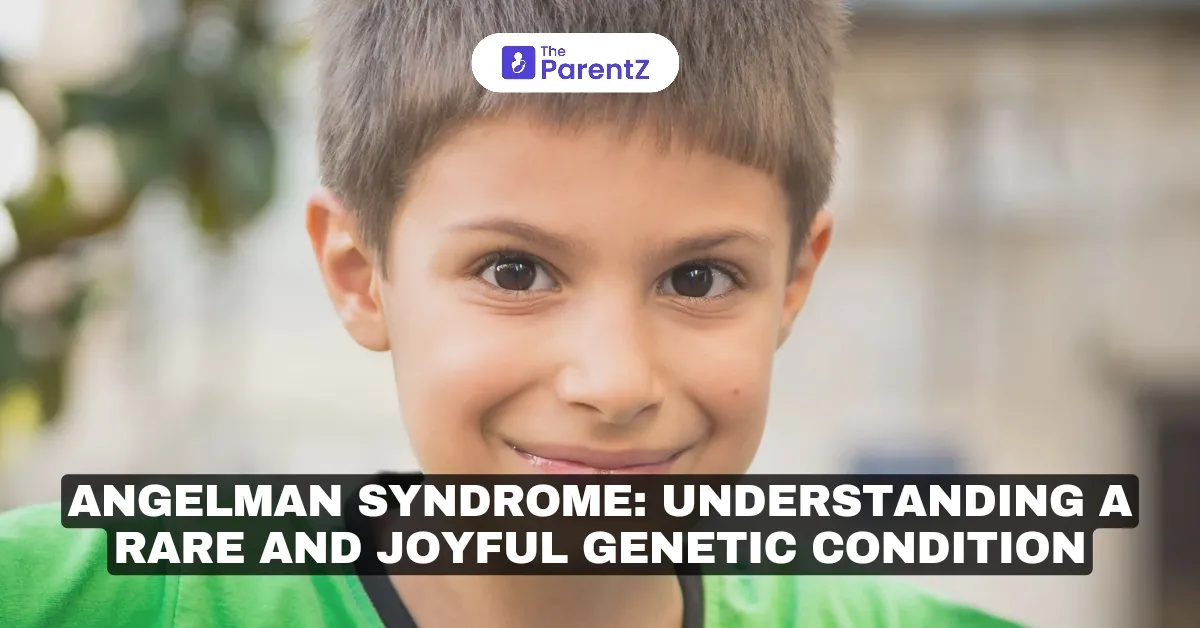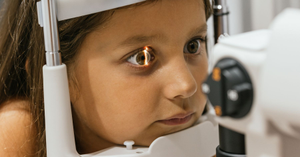Angelman Syndrome (AS) is a rare genetic disorder that affects the nervous system, causing developmental delays, motor challenges, and specific behavioral traits. Despite its challenges, many individuals with Angelman Syndrome are often described as having an unmistakable, infectious joy earning the condition a special place in the hearts of caregivers and families worldwide.
What Is Angelman Syndrome?
Angelman Syndrome is a neurogenetic disorder caused by changes in the UBE3A gene located on chromosome 15. This gene plays a vital role in the development and functioning of the brain. When the UBE3A gene is absent or non-functional, it disrupts normal brain signaling, leading to the symptoms seen in Angelman Syndrome.
The condition is rare, affecting approximately 1 in 12,000 to 20,000 individuals globally.
Key Characteristics of Angelman Syndrome
Angelman Syndrome is often recognized by its unique combination of physical, developmental, and behavioral traits.
1. Developmental Delays
• Milestones like crawling, walking, or speaking are delayed.
• Individuals often exhibit limited or absent speech but can communicate through gestures, sounds, or assistive devices.
2. Distinctive Facial Features
• A wide, smiling mouth.
• Deep-set eyes.
• Prominent jaw and irregular teeth spacing.
3. Happy Disposition
One of the most defining traits is their frequent laughter, smiles, and excitable personality, earning them the nickname “happy puppets” (a term now discouraged for its outdated and insensitive connotations).
4. Motor Challenges
• Ataxia (unsteady gait) and difficulties with coordination.
• Fine motor skills, like gripping objects, are often impaired.
5. Neurological Symptoms
• Seizures are common, typically beginning between 1–3 years of age.
• Individuals often display jerky movements or hand-flapping gestures.
6. Sleep Disorders
• Difficulty sleeping or maintaining sleep is prevalent in children with AS.
Causes and Genetic Basis
Angelman Syndrome results from changes in the UBE3A gene located on the maternal chromosome 15. The gene produces a protein essential for normal brain development. Causes include:
1. Deletion of the UBE3A gene (most common).
2. Mutation within the gene itself.
3. Paternal uniparental disomy (UPD): Inheriting both chromosome 15 copies from the father.
4. Imprinting defects that affect gene expression.
Genetic testing is crucial for diagnosing Angelman Syndrome and identifying the specific cause.
Why Angelman Syndrome Is Called a “Joyful Condition”
Despite the medical challenges, children and adults with Angelman Syndrome are often associated with happiness, laughter, and positivity. Their unique personalities include:
• A deep connection with caregivers through non-verbal cues and gestures.
• A love for music, lights, and social interaction.
• Resilience and adaptability, even in the face of physical and cognitive difficulties.
Families often report that their children with AS bring an irreplaceable light and perspective to their lives, teaching lessons about unconditional love, patience, and joy in simplicity.
Treatment and Support for Angelman Syndrome
While there is no cure for Angelman Syndrome, early intervention and supportive care can significantly improve the quality of life.
1. Therapies
• Speech Therapy: Focuses on alternative communication methods like picture boards or apps.
• Physical Therapy: Helps improve mobility and coordination.
• Occupational Therapy: Builds independence in daily tasks.
2. Seizure Management
• Anti-epileptic medications and dietary therapies (e.g., ketogenic diets) are often used to manage seizures.
3. Behavioral Interventions
• Structured routines and sensory activities can help reduce anxiety and enhance participation.
4. Genetic Research and Emerging Treatments
• Clinical trials are exploring gene therapy approaches to restore UBE3A function.
• Studies on RNA therapies aim to “reactivate” the dormant paternal copy of the UBE3A gene.
Living with Angelman Syndrome: A Family’s Perspective
Families of individuals with Angelman Syndrome face unique challenges but also share inspiring stories of growth, love, and happiness. Key takeaways include:
• Community Support: Organizations like the Angelman Syndrome Foundation provide resources, advocacy, and a sense of belonging.
• Celebrating Milestones: Progress may be slow, but every achievement is monumental.
• Embracing the Joy: The laughter and smiles that define Angelman Syndrome often bring warmth and positivity to those around them.
Research and Future Outlook
The future for individuals with Angelman Syndrome is promising, thanks to advancements in genetics and neuroscience. Current research focuses on:
1. Gene Therapy: Introducing functional UBE3A genes into brain cells.
2. Pharmacological Interventions: Drugs aimed at improving neurological function.
3. Improved Seizure Control: Developing targeted treatments for epilepsy in AS patients.
As science progresses, the hope for better treatments—and even a potential cure—continues to grow.
A Note for Caregivers
Caring for a child with Angelman Syndrome can be both challenging and deeply rewarding. Remember:
• You are not alone. Reach out to support groups and medical professionals for guidance.
• Celebrate your child’s unique strengths and moments of happiness.
• Advocate for awareness and inclusivity in schools, communities, and healthcare systems.
Angelman Syndrome reminds us that joy often transcends words, milestones, or conventional definitions of success. It’s about finding beauty in the journey and cherishing the laughter along the way.
References for Further Reading
• Angelman Syndrome Foundation: www.angelman.org
• American Journal of Medical Genetics: Studies on AS genetics and interventions.
• ClinicalTrials.gov: Ongoing research and experimental therapies for Angelman Syndrome.
Angelman Syndrome is more than a medical condition; it’s a lesson in resilience, joy, and the power of unconditional love.








Be the first one to comment on this story.